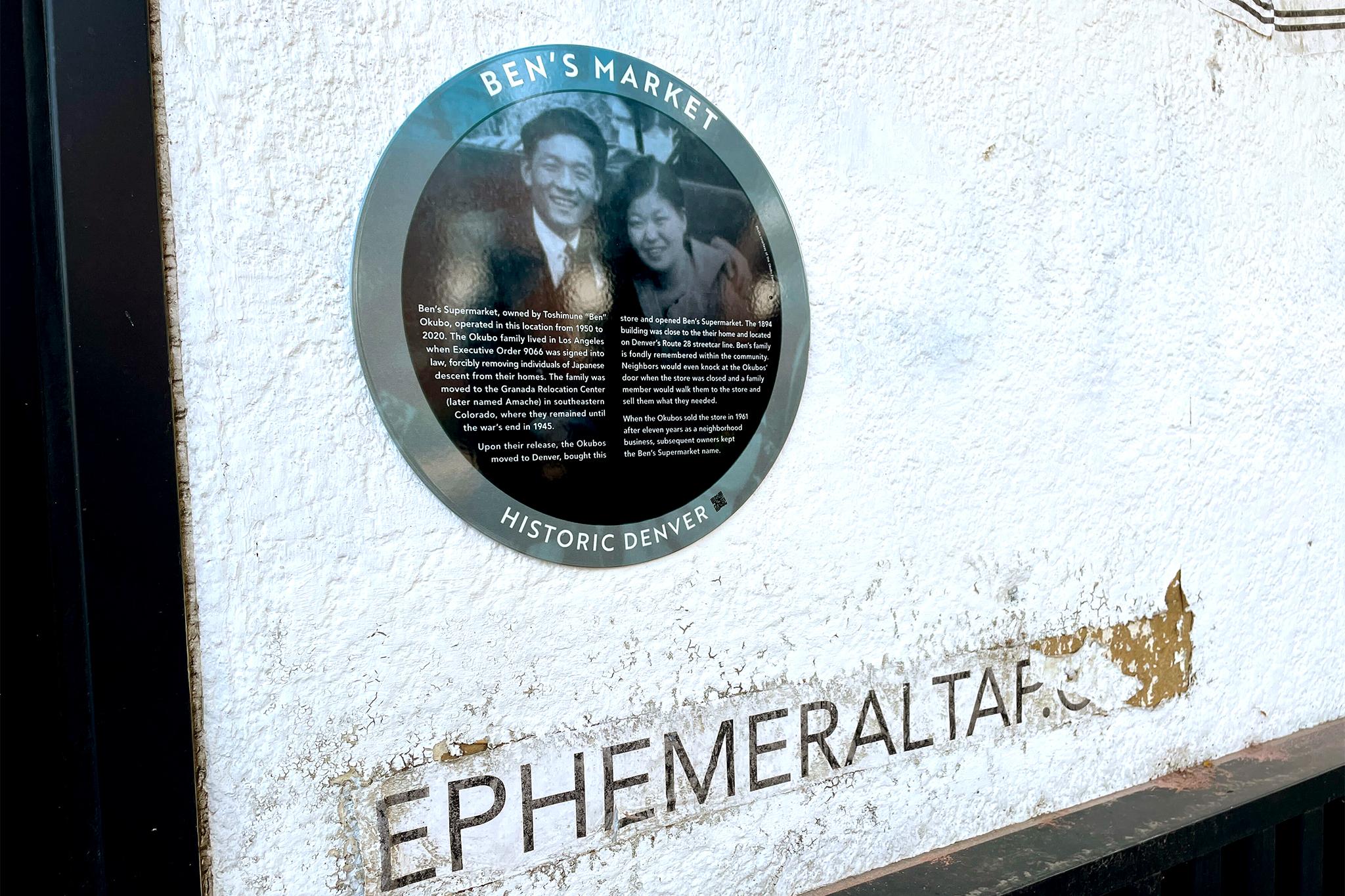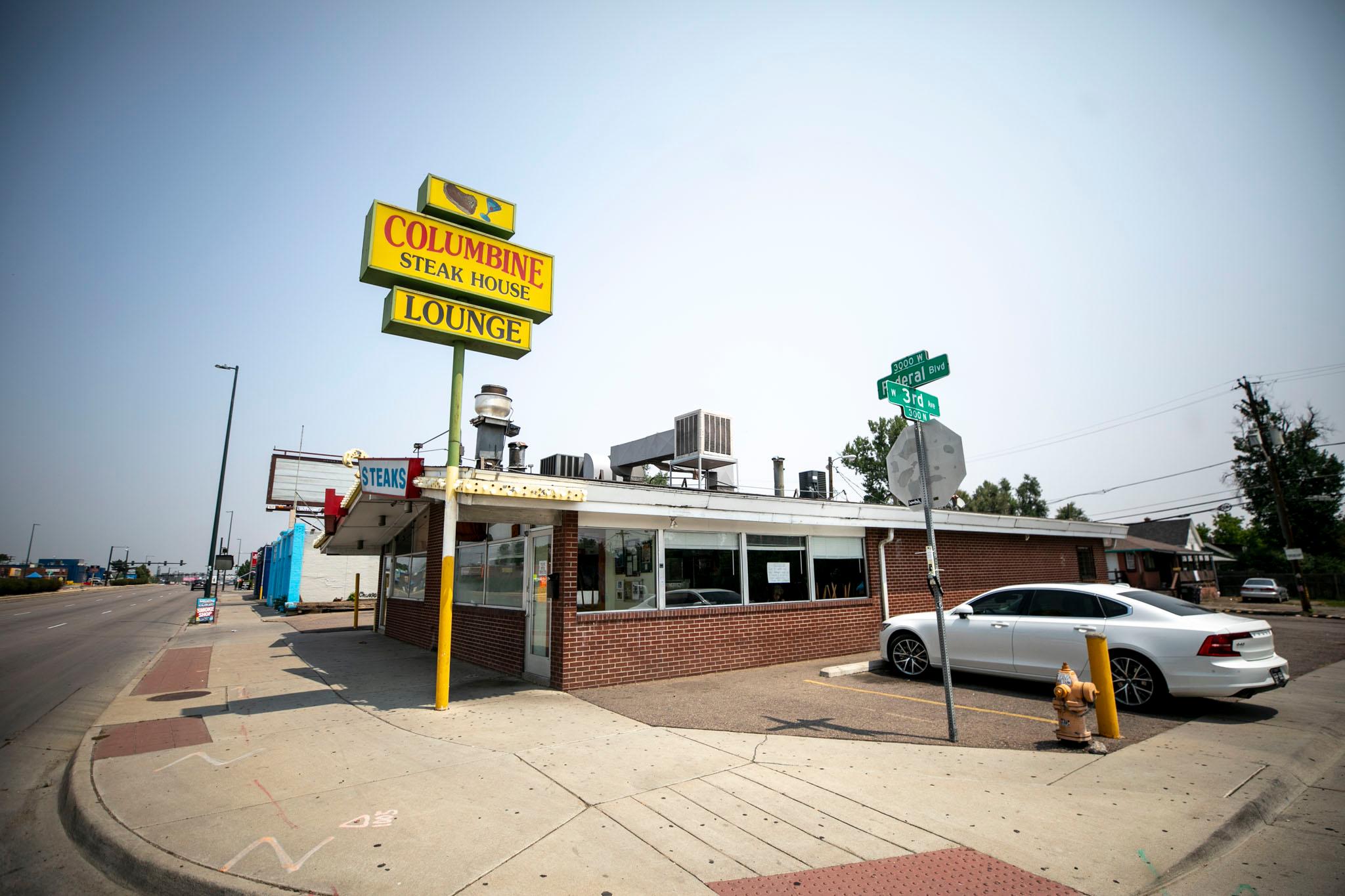
For every one person killed accidentally by a firearm in Colorado, 18 people are murdered and 78 people use a gun to take their own lives.
Talking about suicide and firearms is hard, though, because it gets tied up very quickly with the broader gun control debate. That's where the Colorado Gun Shop project comes in, by providing gun shop owners with the information and training to be a trusted voice in a community that's sometimes suspicious of efforts to limit access.
The Gun Shop Project started on the Western Slope; more recently, it's found some allies in the Denver metro area, including Centennial Gun Club and Bristlecone Shooting, Training and Retail Center in Lakewood.
Jacquelyn Clark, who owns Bristlecone Shooting, said she bought her first gun for personal protection after being the victim of a home invasion in Atlanta, where she used to live. She ended up falling in love with shooting as a sport.
Clark has also seen the lasting wounds that suicide leaves behind in her own extended family, and that motivates her to do more to reduce the risk that someone with a gun will use it to take their own life.
"I'm very conscious of what we deal in here," she said.
The Gun Shop Project distributes materials to shops that add an "11th Commandment" gun safety guidelines: "Consider temporary off-site storage if a family member may be suicidal. Consider temporary off-site storage if a family member is suicidal. When an emotional crisis (like a break-up, job loss, legal trouble) or a major change in someone’s behavior (like depression, violence, heavy drinking) causes concern, storing guns outside the home for a while may save a life. Family, friends, as well as some shooting clubs, police departments, or gun shops may be able to store guns for you temporarily."
Sarah Brummet, suicide prevention commission coordinator with the Colorado Department of Public Health and Environment, said the idea for the Gun Shop Project was lifted wholesale from an effort in New Hampshire that started back in 2009. Most people who attempt suicide aren't in mental health treatment, so it's important to reach people where they are in the community and through people they trust, she said.
"At the local level, the people who are bringing the message of the Gun Shop Project into the ranges and shops are already part of the firearms community," she said. "They're saying, 'This is us, and this is something we can do,' and that's been essential to making that connection."
Colorado has the seventh highest suicide rate in the country.
And while guns are used in about a third of suicide attempts, they account for half of all deaths. People who shoot themselves are much more likely to die than people who use other methods. Nationally, suicides account for more than 60 percent of all gun deaths, and Colorado's rate is even higher.
FiveThirtyEight painted a vivid portrait of the issue as part of its series on guns deaths earlier this year. All of the Western states have high suicide rates, with the high rate of gun ownership being one of the contributing factors. In Wyoming's Casper Star-Tribune, Tom Morton compared talking about guns and suicide to touching a "third rail."
The project seeks to make suicide awareness part of the culture of safety around gun ownership.
"We're not asking the ranges or shops to diagnose people or be mental health providers. ... This isn't talking about ownership restrictions or gun control," Brummet said. "This is just another element of safety that is embedded in firearms ownership culture already. We're seeing this initial resistance start to wane."
A common misconception about suicide is that the person will just find another way if one means of action is put off limits. That's not true for many suicidal people. Often, they have a specific plan in mind, and if that plan can be disrupted, they won't kill themselves.
Research here and in other countries shows that reducing access to the most popular means of suicide reduces the overall suicide rate, Brummet said. In Israel, where active duty soldiers used to take their service weapons home on the weekends, suicide rates fell when a new policy required them to check their guns in before going home. In Great Britain, gas in home kitchens was the most popular means of suicide. When the type of gas was changed (for totally unrelated reasons), the suicide rate went down. Similarly, when particularly lethal pesticides were banned in India, the suicide rate also fell.
And if a suicidal person does find another way to try to take their life, they're less likely to succeed with other methods.
"Ninety percent of the people who attempt suicide do not go on to have another suicide attempt, but people who use a firearm don't get a second chance," Brummet said. "They don't get to be part of that 90 percent."
Clark trains her employees to look for signs that a customer isn't doing well, and she won't sell guns to people who seem like they're experiencing mental health crisis. These customers can seem disassociated, but one of the more important signs is that they don't ask a lot of questions and they haven't done any research. They just want a gun.
"That's very atypical from most firearms consumers," she said.
A normal first-time buyer will have done a lot of research because they want to get the right gun, and they don't want to seem ignorant. Someone buying their 50th gun has something specific in mind.
It can be difficult for some people to make the decision to store their weapons somewhere else.
"It's a hard juxtaposition," Clark said. "You want it in the home because that's how you feel safe, but sometimes you reach a point where you are safer without the gun in the home. We help them understand their options."

Centennial Gun Club offers bank safety deposit box-style storage to members and non-members. There are pros and cons here, as a person wouldn't need medical clearance to get their weapons back. This option has a certain appeal, though, because you don't have to explain to anyone why you're storing guns there. Because the person could only get access during business hours, there's a barrier to impulsive action.
Some law enforcement agencies will also keep guns during a mental health crisis. Julie Books, a spokeswoman for the Arapahoe County Sheriff's Office, said the department prefers not to offer "storage" but will take guns into custody "for safekeeping" if someone is in mental health crisis. Similarly, the Jefferson County Sheriff's Office will take custody of guns if asked when they respond to a mental health situation. In that case, the person would need medical clearance to get the weapon back.
Sometimes family members or friends can store guns, but they need to be able to pass a background check and be legally cleared to own guns themselves. There are also biometric safes that allow owners to make sure other family members can't get ahold of their guns.
It's not clear yet how successful the project will be.
Brumett said the state doesn't have money to study the effectiveness of the project, and it's still a relatively new effort.
Similarly, in New Hampshire, a spokesman for the Department of Health and Human Services said any changes in the suicide rate are not statistically significant.
The goal, Jake Leon said in an email, is a long-term cultural change. Nearly half of all gun shops in the state now carry materials about reducing access to guns for people in crisis.
"The most significant impact of the project has been to bring together the firearm and the suicide prevention communities to work to reduce firearm suicides," he said. "That’s a really big step, and it’s a positive change that these two communities are willing to work collaboratively on the issue of firearm suicide."
How to get help:
If you or someone you know is in need of support, contact the Colorado Crisis and Support Line at 1-844-493-TALK (8255) or text "TALK" to 38255. Chat services are also available at www.coloradocrisisservices.org.
Someone will answer 24 hours a day, every day of the year.












